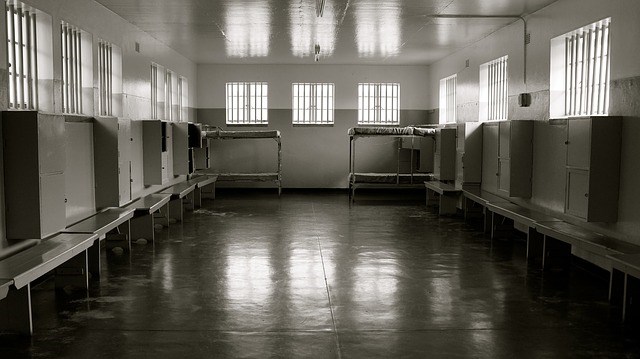Non-violent inmates being held on remand in Saskatchewan’s jails may be released while they wait for trial.
Saskatchewan Public Prosecutions is reviewing each person held in remand as they normally would, with additional consideration given to the current emergency situation caused by the COVID-19 pandemic, said Noel Busse, director of communications for Saskatchewan Ministry of Justice/Corrections and Policing.
“Public Prosecutions was already doing much of this work as part of regular court proceedings,” said Busse. “Whenever an accused on remand appears before the court, the Crown reviews the case and works with the judiciary and defense counsel to make a decision on whether they can be released on conditions (i.e. – bail). Whether the Crown consents to anyone’s release will depend on public safety first, and other relevant considerations.
“The main difference in the current process is that Public Prosecutions is now taking COVID-19 into account as an additional consideration when reviewing cases. Public Prosecutions is also assessing whether low-risk offenders currently waiting for trial or to be sentenced can be released on bail.”
Busse said this is an ongoing process with each file reviewed on a case-by-case basis and there’s no specific timeline.
Last week the union that represents Saskatchewan’s legal aid lawyers called on the federal and provincial governments to release non-violent inmates from jail and prison to help stop the spread of COVID-19. The union wants the federal and provincial government to release non-violent inmates considered at low risk to re-offend, and especially those who are elderly and/or have medical conditions that make them vulnerable to COVID-19.
“Individuals meeting these criteria should be released in order to reduce the��risk of COVID-19 transmission in Saskatchewan’s custodial facilities,” said Conway. “We are entering unchartered��territory and must respond with proactive measures. In order to protect our communities, reduce the strain on our healthcare system, and ensure the humane treatment of all incarcerated people, we are asking for governments to take action now.”
“Overcrowded facilities housing vulnerable populations are a potential public health risk,” said Meara Conway, president of CUPE 1949 in a statement on March 19. “An outbreak in any of Saskatchewan’s jails could strain nearby health care systems, and threaten the wellbeing of inmates, staff, and nearby communities.”
Busse said it’s not clear how many accused or offenders appearing before the court in the coming months this affects. He said they will be assed with the COVID-19 situation in mind.
“As such, Public Prosecutions cannot provide a specific figure for how many accused this may impact. It also needs to be noted that there will be many accused who do not meet the criteria for early release. Public safety is the chief concern when making decisions to release remanded accused on bail.”
Busse added that Prosecutions must work within the limitations COVID-19 has imposed on Saskatchewan’s courts.
Some court houses across the province have completely closed during the pandemic or reduced their services. Many court cases have been adjourned for at least 10 weeks.
On March 17, Saskatchewan’s Chief Judge J.A. Plemel issued a statement on the Saskatchewan Law Courts website saying in order to protect the health and safety of all court users and to contain the spread of COVID-19, the Provincial Court of Saskatchewan was reducing court operations but would ensure access to the court for urgent matters.
“Given the current situation, there are limitations to how many cases prosecutors will be able to review and how many accused may be able to appear before court. We are working with the courts to facilitate appearances through videoconferencing, by telephone, or otherwise where possible.”
How this affects prisoners who have been sentenced and are currently serving time in the federal and provincial penitentiaries is unclear. They are the responsibility of the provincial and federal corrections departments.
“The provincial Ministry of Corrections and Policing is exploring how to more effectively manage the sentenced offender population in our provincial correctional facilities in light of the COVID-19 outbreak,” said Busse. “At this time, Corrections has not implemented any changes to its existing early release or reintegration programming.”
��
��




